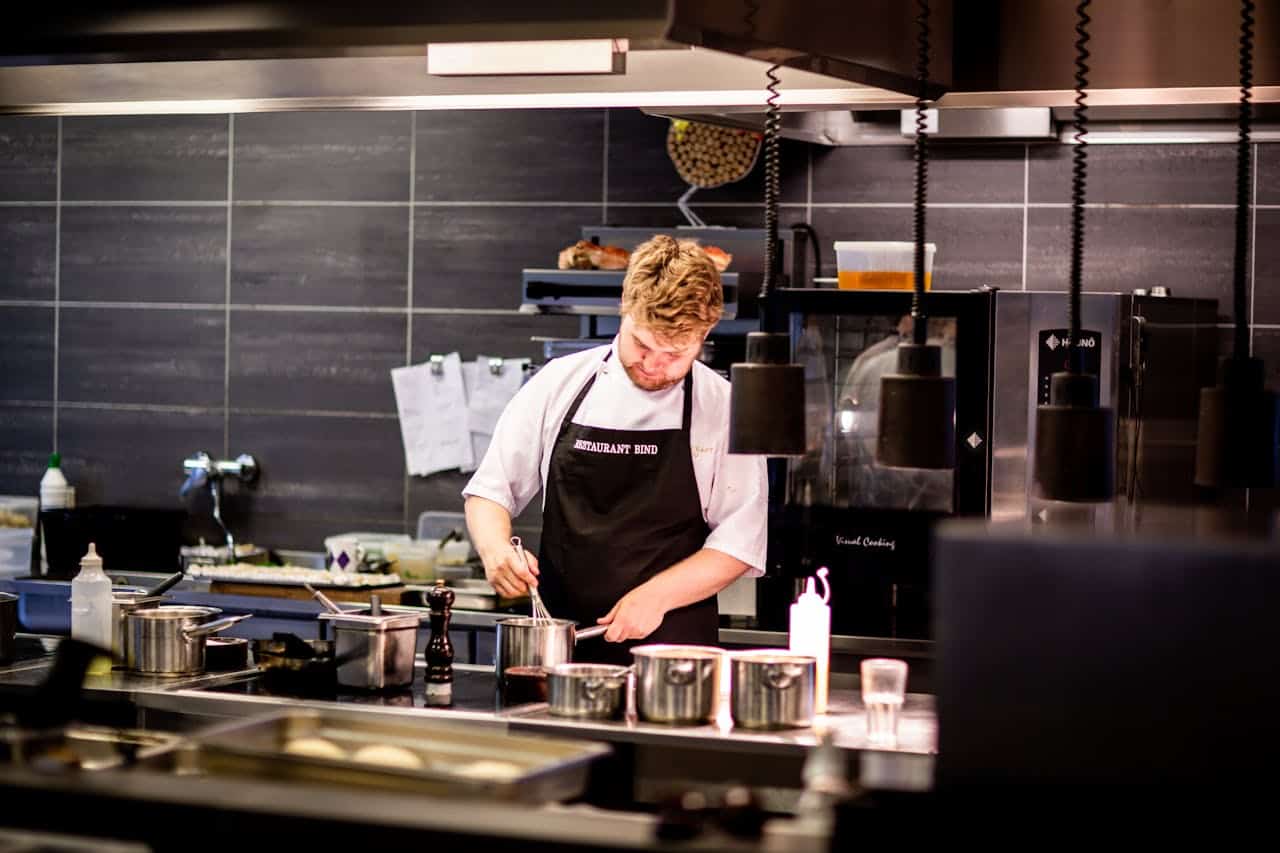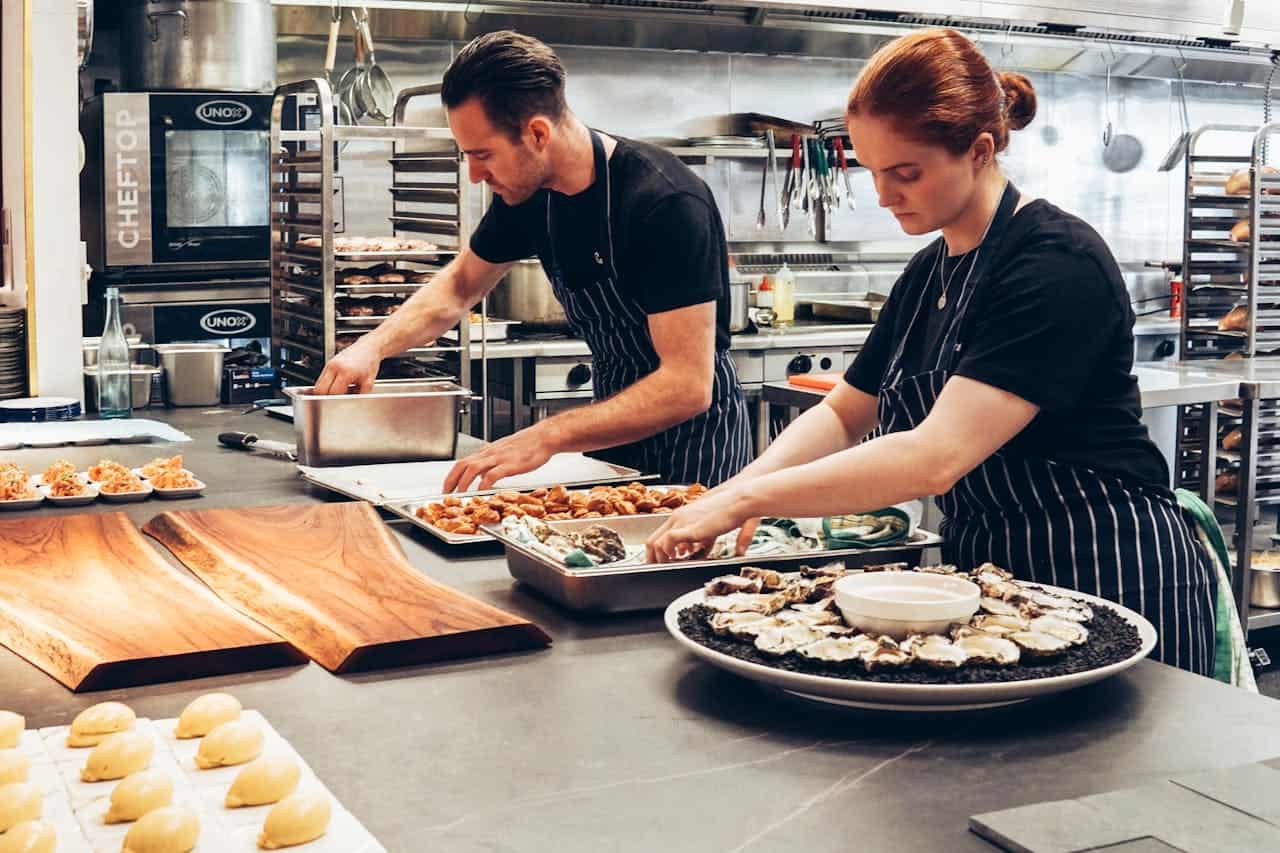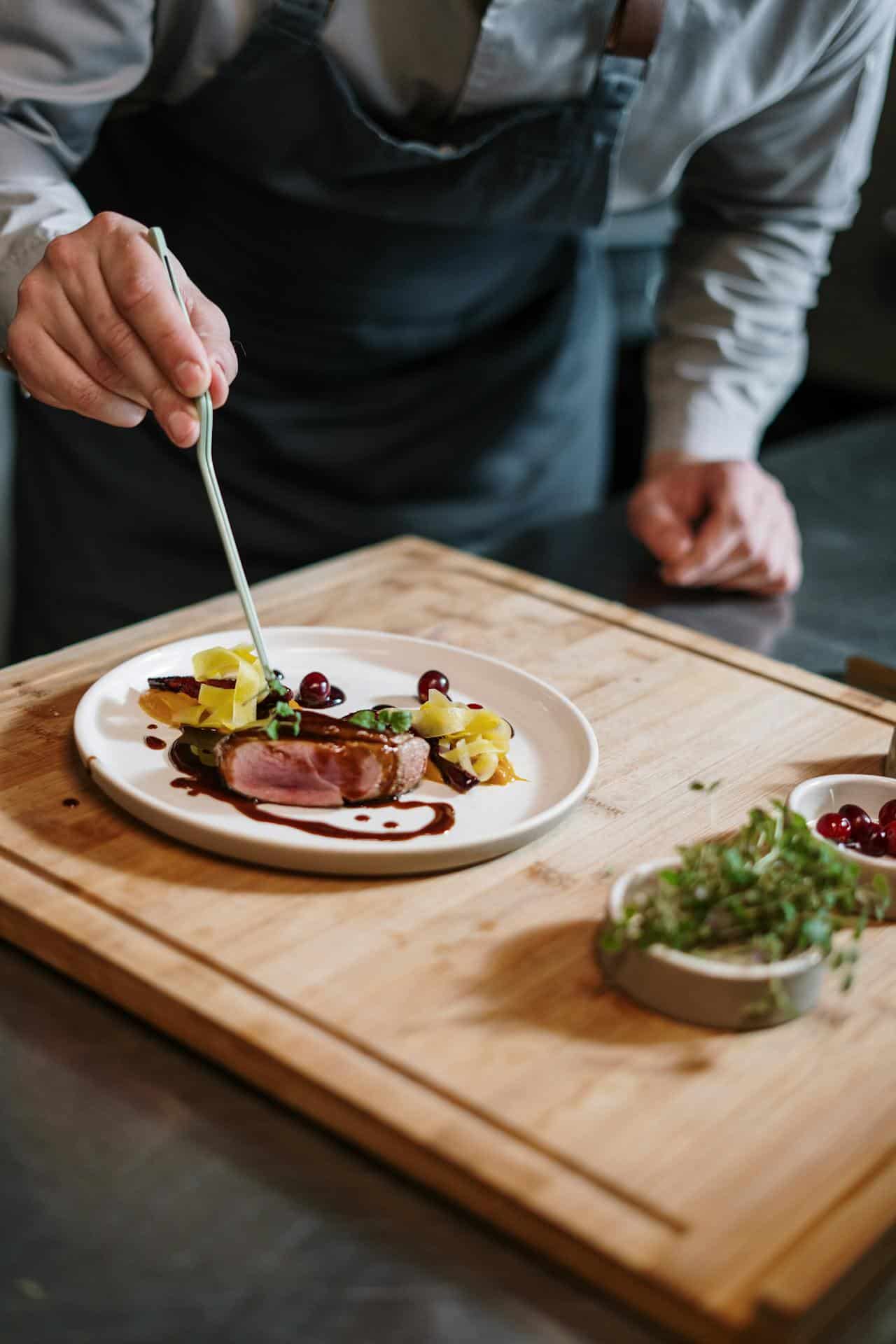Culinary professions provide a wide variety of options for enthusiastic foodies. Now that online learning has emerged, it is easier than ever to pursue a culinary degree. From pastry chefs to recipe developers and beyond, an online cooking degree can lead to a variety of fascinating jobs in the food business.

Flexible online programs have made it possible for aspiring culinary experts to acquire the requisite information and abilities. Important subjects including menu planning, kitchen management, nutrition, and food safety are covered in these courses. While juggling their personal and professional obligations, students can learn at their own speed.
Graduates of one of the top online culinary schools in the US have a wide range of job options. In the food industry, they might work in bakeries, hotels, restaurants, or even launch their own companies. Those with the necessary training and knowledge can take advantage of new opportunities as the culinary industry continues to change.
Key Takeaways
- Aspiring professionals in the food business have flexible educational options with online culinary degrees.
- Pastry chefs, recipe developers, and food service managers are just a few of the varied professions available to graduates.
- Students who receive culinary education acquire critical abilities in kitchen management, nutrition, and food safety.

Exploring Culinary Career Paths with an Online Degree
Numerous employment options in the food business are made possible via online culinary degrees. These courses give students the fundamental information and abilities they need to pursue a variety of careers outside of the kitchen.
The Diverse Roles in Culinary Arts
With an online degree, culinary professionals can pursue a variety of job options. In hotels and restaurants, executive chefs oversee the culinary operations. Sous chefs help with staff management and menu planning.
Making baked items and pastries is the speciality of pastry chefs. Food stylists set up plates for commercials and picture shoots. Food photographers take scrumptious pictures for magazines and cookbooks. Recipes, restaurant reviews, and culinary articles are created by food writers.
New products are created for food firms by research chefs. Restaurants and culinary enterprises might benefit from the experience of chef consultants. Online recipes and culinary adventures are shared by food bloggers.

Bridging the Gap: Online Education and Real-World Experience
Online cooking education provides convenience and flexibility. Through online classes and demonstrations, students get an understanding of basic methods, flavor profiles, and culinary theory. At-home cooking assignments are a common way for programs to include hands-on elements.
Students frequently finish internships in professional kitchens to obtain real-world experience. These assignments offer beneficial exposure to authentic culinary settings. Some online courses arrange in-person training sessions in conjunction with nearby eateries or lodging facilities.
Students can concentrate on certain topics like baking, international cuisines, or sustainable food systems through culinary specializations. In highly competitive employment markets, graduates stand out because of this focused education.
Understanding Food Safety and Nutrition
An essential element of online culinary instruction is food safety. To avoid foodborne infections, students are taught how to handle, store, and prepare food properly. They research the health and sanitation standards that are necessary for any culinary profession.
Another essential component of online culinary training is nutrition education. Students learn how to prepare wholesome meals and the science underlying balanced diets. Jobs in schools, healthcare facilities, and restaurants with a wellness theme benefit from this knowledge.
Culinary education is placing more and more emphasis on sustainable food systems. Students gain knowledge about using eco-friendly methods in food preparation and serving, minimizing food waste, and obtaining local foods.
Building a Successful Culinary Career Online
Numerous options for professional development and advancement are available through online culinary training. Digital awareness, business savvy, and technical skills are all necessary for success in this industry.
Developing Business and Customer Service Skills
Courses in hospitality and food industry management are frequently included in online cooking certificates. Students who participate in these programs learn how to plan meals, control food expenses, and comprehend customer expectations. A major area of attention is food entrepreneurship, which includes subjects like pricing and menu planning.
In the food and beverage sector, having strong customer service abilities is essential. Online courses include a strong emphasis on managing visitor comments, problem-solving, and effective communication. Students gain experience remotely running a professional kitchen while juggling client satisfaction and quality control.
Health and safety requirements, personnel scheduling, and inventory control are all included in food service management training. Running successful food enterprises, whether in restaurants or catering services, requires certain abilities.
The Importance of Networking and Continuous Learning
Even for online learners, networking is essential in the culinary industry. Numerous programs provide online forums, guest lectures, and virtual events for students to network with other students and experts in the field.
Keeping up with the latest developments and trends in cooking requires constant learning. Webinars, workshops, and digital materials with culinary masters are frequently accessible through online cooking schools.
To build their network, students might participate in virtual conferences and join professional associations. These relationships may result in career leads, mentoring possibilities, and joint ventures in culinary consultancy or food writing.
Leveraging Online Platforms to Build Your Brand
In the modern culinary industry, having a digital presence is essential. Courses in social media marketing, personal branding, and food photography are frequently offered in online culinary programs.
Students learn how to produce interesting content for websites like YouTube and Instagram. Opportunities as a food blogger or influencer may result from this, complementing more conventional culinary careers.
It's crucial to develop an online portfolio that highlights culinary methods, food styling, and recipes. In the food industry, this digital résumé may draw in clients or employers.
Online platforms also make it possible to work remotely, which improves work-life balance. Chefs can create recipes for brands, conduct online menu consulting, or teach virtual cooking lessons.
Wrapping Up
Numerous employment options in the food business are made possible by an online cooking degree. Graduates can work as culinary advisors, restaurant managers, chefs, food stylists, and nutritionists. Students can balance other obligations while gaining useful skills thanks to the flexibility of online learning.
Culinary professionals can find fulfilling careers in and out of the kitchen with the correct training and commitment. People with culinary skills will continue to be in demand across a variety of industries as the food business develops.





Leave a Reply